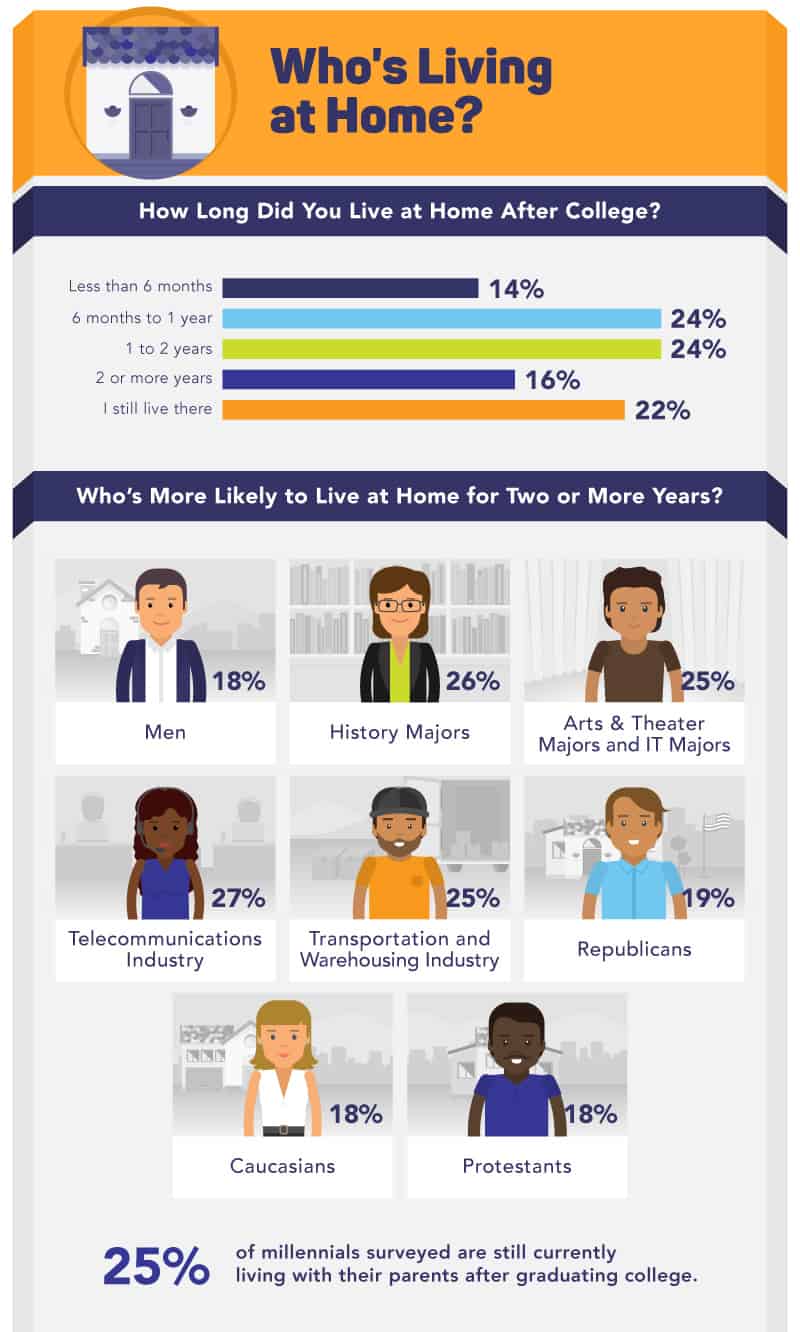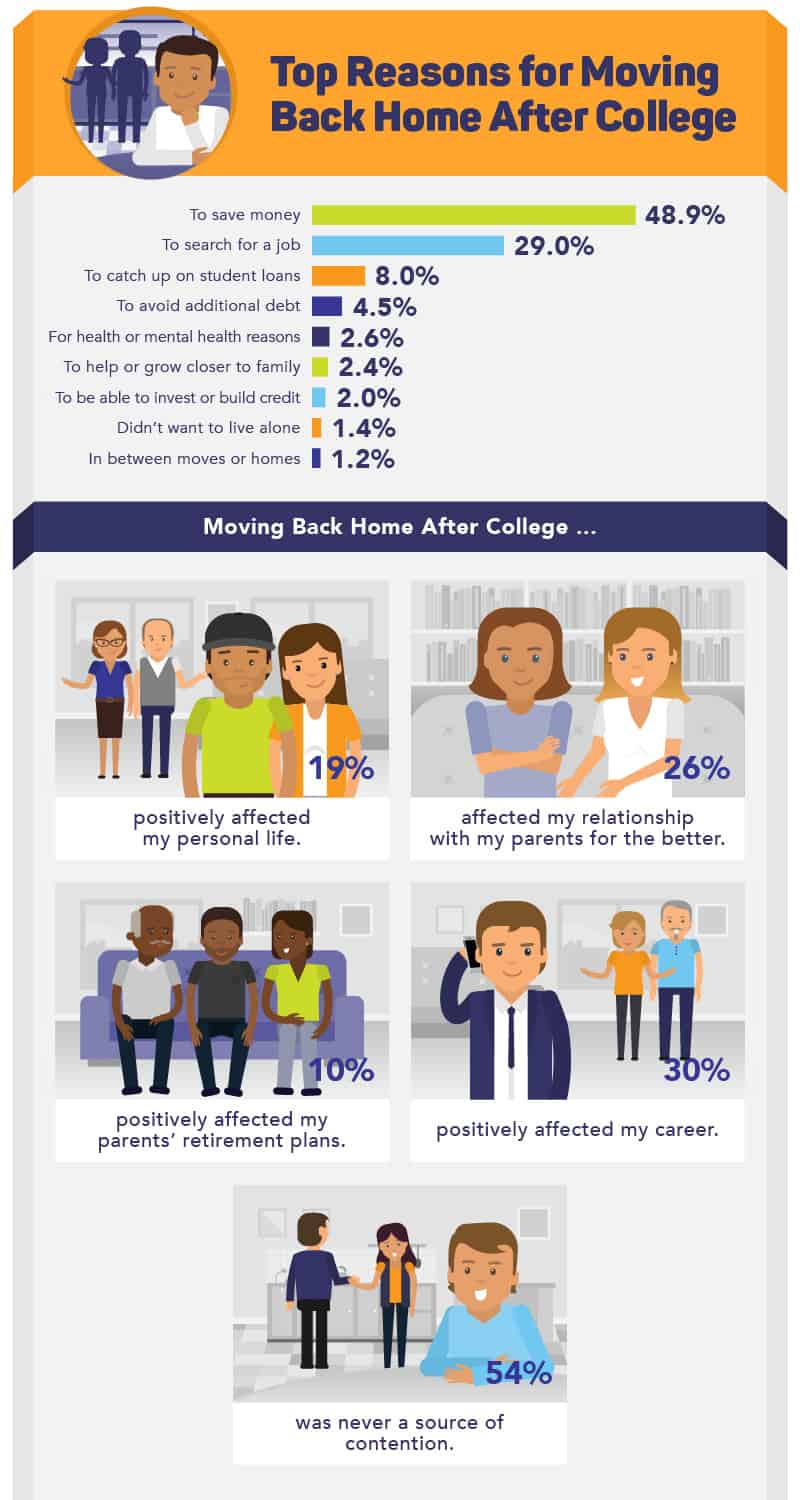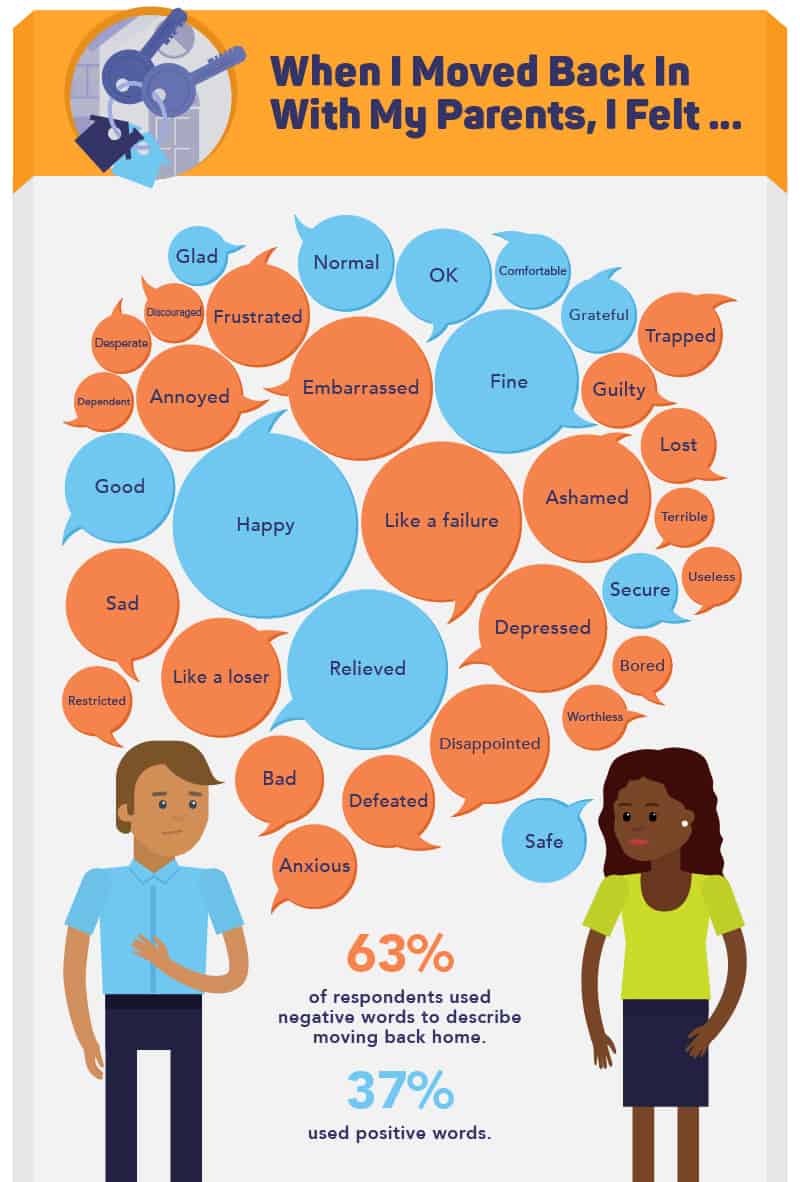
Back at Home
Last Updated
 Graduating from college marks an important moment in your life. You're ready to tackle the great wide world and apply all of your studies in the professional field of your choosing. But now you're also looking for a roommate... one who, you know, offers free utilities or cheap rent. Maybe someone who isn't concerned about your current credit standing and might even provide complimentary meals once or twice a day.
Graduating from college marks an important moment in your life. You're ready to tackle the great wide world and apply all of your studies in the professional field of your choosing. But now you're also looking for a roommate... one who, you know, offers free utilities or cheap rent. Maybe someone who isn't concerned about your current credit standing and might even provide complimentary meals once or twice a day.
Moving back home with your parents after graduation isn't glamorous, but it's a reality for many college graduates today. Who are these young men and women, and what reasons do they have for returning to the nest? We surveyed 800 college graduates who moved back home to find out. Keep reading.
Home Sweet Home

While the traditional college experience lasts about four years and often requires moving away from home, real life doesn't always start immediately after graduation. Walking away from college and into the professional workforce isn't a journey that always goes smoothly. Sometimes heading back home is the best available option.
24 percent of respondents lived with their parents for one to two years after college, while another 24 percent lived at home for six months to a year. However, 22 percent of participants are still living at home.
We found those who majored in history, arts and theater, or information technology were the most likely to pack up their dorm rooms just to head back home. Those in the telecommunications industry and the transportation and warehousing industry were also more likely to live with Mom and Dad. The odds of a postgrad living at home also went up if the respondent was Caucasian, male, Republican, or Protestant.
The Highs of Living at Home

Nearly 49 percent of respondents moved back home to save money.
The U.S. economy has improved in recent years, but millennials do earn 20 percent less on average than the generation before them. Moreover, student loan debt has gone up. These factors may force college graduates—even those with jobs—to seek shelter from their debt and low wages.
Other reasons participants moved home included searching for a job (29 percent), catching up on student loan payments (8 percent), and avoiding additional debt (4.5 percent). In fact, millennials have some of the lowest percentages of credit card debt among Americans today. However, student loan debt and lower earning potential may keep them financially fragile—making moving back in with parents a smart decision.
Thirty percent of respondents said their decision to move back home positively affected their career, and 26 percent said it improved their relationship with their parents.
Financial Security at Home

While living with parents back home for more than two years may not be glamorous, it certainly has its perks.
Those who lived at home for fewer than two years had an average of almost $24,000 in loans, while those who lived at home for more than two years had an average of over $25,000 in student loans. Those who lived at home for fewer than two years were also likely to have spent less on their college tuition than those who have stayed for more than two years.
On the flip side, respondents who lived at home for a shorter period were more likely to earn a larger annual income. Those who lived at home for less than two years made a little over $6,500 more than respondents who lived with their parents for more than two years.
(It should be pointed out that a lot of college students these days also live at home while attending school. If you find a nearby career college or vocational school, you can often reduce your overall expenses, which can make it easier to get on your feet after graduation.)
Mixed Bag of Emotions

Finally, we asked our survey respondents how they felt after they moved back home. Whether it's the pressure of having to find their first real job or the crushing realization of how much rent really is, many participants told us they felt happy being home. They also expressed relief, comfort, and safety.
While moving back in with parents after college can help graduates save money and avoid debt, some respondents felt embarrassed or like a failure after moving back home. It may be natural to feel this way in the beginning, but hopefully, these feelings of disappointment and defeat will eventually disappear as more millennials make the decision to bunk up at home.
Mom and Dad—Roommates for Life
Some college graduates take that welcome mat on the front porch quite literally as they head right back home after graduation to share a roof with their parents again—this time as adults. It's a decision that isn't just financially responsible, but one that can also create a sense of emotional relief and happiness. Some people are even happy to be living at home at 30 years of age.
Regardless of the dollars and "sense," the number of millennials moving home after college brings new meaning to the idea of coming home for the holidays. At Trade-schools.net, we can help you find a school that can help you advance in your current career, whether you live at home or not.
Methodology
We surveyed 800 college graduates who moved back home after graduation.
Additional Source
- PBS, One key economic factor is forcing millennials to move back home, website last visited on June 23, 2020.
Fair Use
You can use the images above freely for noncommercial purposes. But please be kind and link back to images' home so the authors receive credit.
